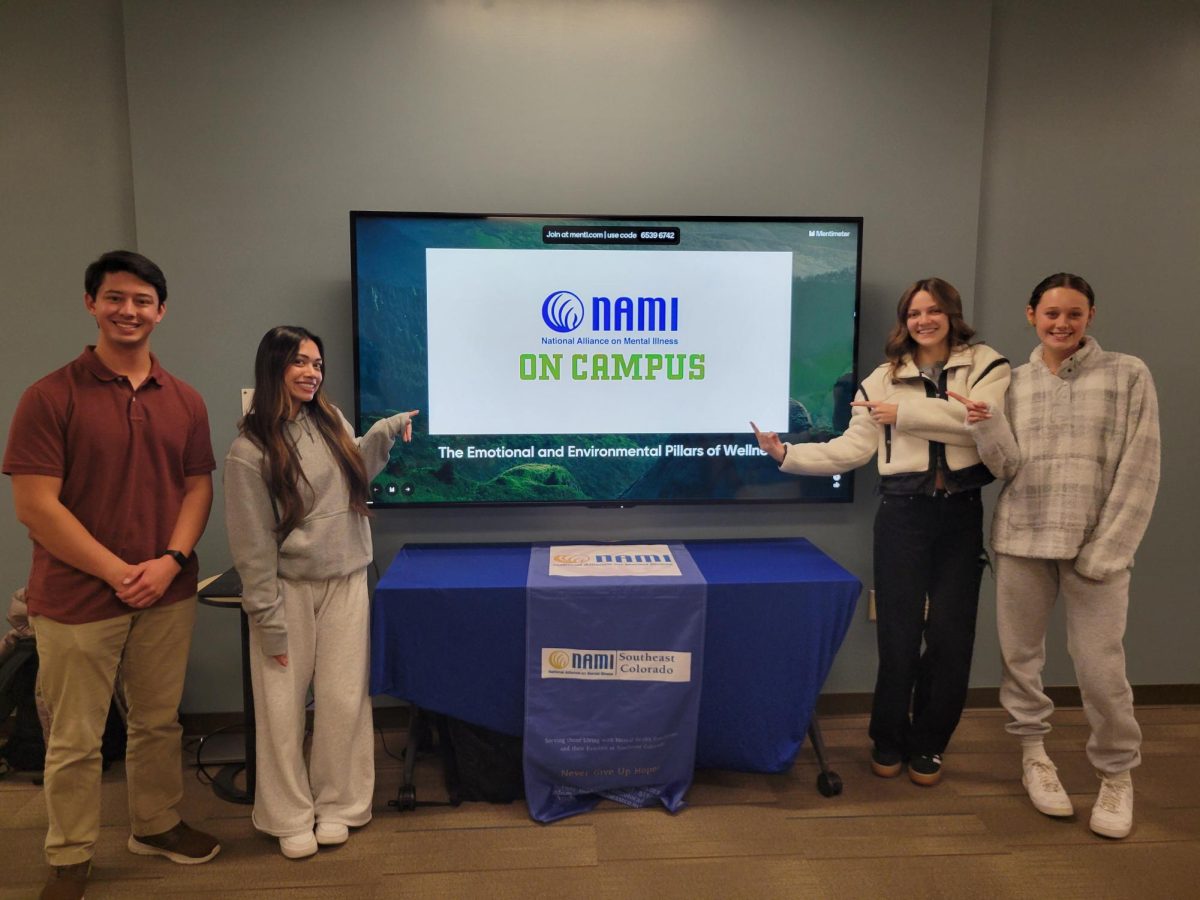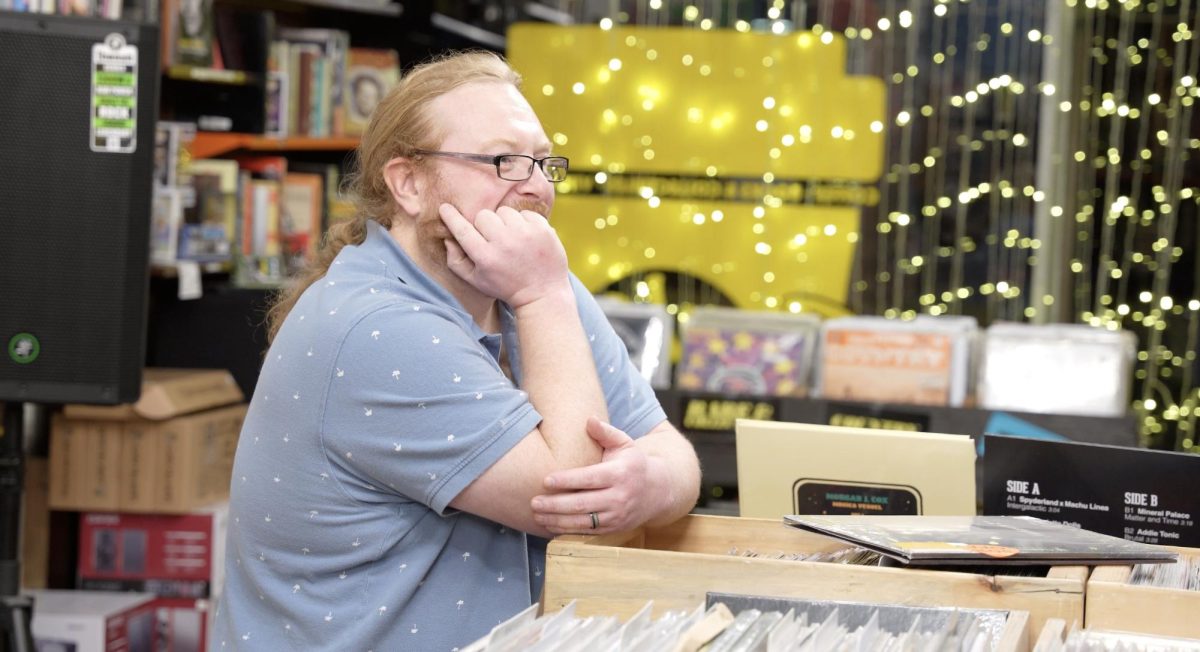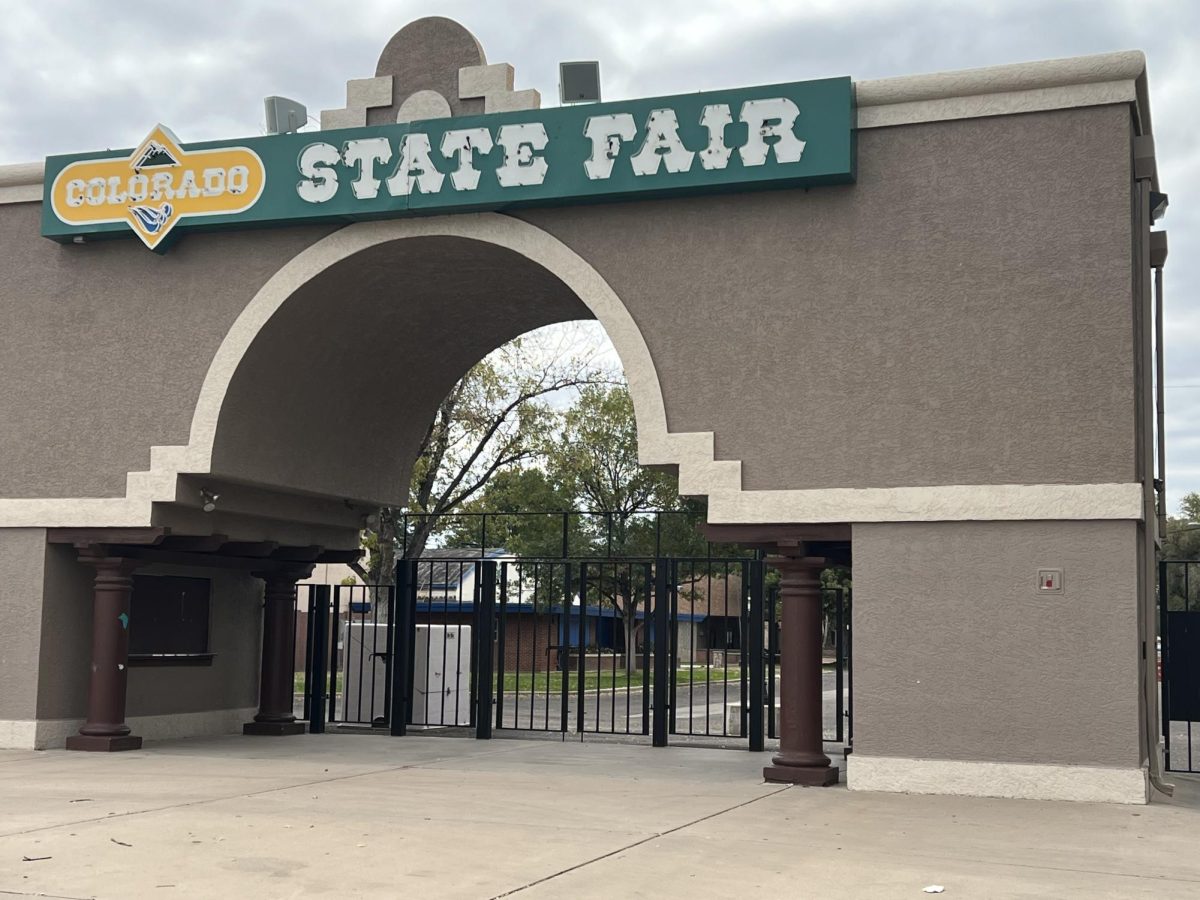 A single fan blew air through a stifling 14-by-17 room in Saigon, Vietnam, while Air Force Sgt. Richard Joyce taught English to 20 Vietnamese soldiers, armed with only six clips for an M-16, in case of an attack.
A single fan blew air through a stifling 14-by-17 room in Saigon, Vietnam, while Air Force Sgt. Richard Joyce taught English to 20 Vietnamese soldiers, armed with only six clips for an M-16, in case of an attack.
Currently, Joyce is a professor in the mass communications department at CSU-Pueblo and now lectures in a substantially less dangerous environment. In addition, Joyce is the managing editor of the Redstone Review for which he also writes a monthly political column.
Joyce said he took the opportunity to teach in Saigon when he was offered the opportunity to train as an English teacher in a program called Operation Palace Dog. The program was aimed to help Vietnamese soldiers learn English and operate flight equipment.
“I accepted the offer because I wanted to go there and see what was going on for myself,” Joyce said.
Since the draft was in effect, Joyce was chosen as “lucky number seven” in the lottery in 1968.
“I thought the war was wrong,” Joyce said. “But each one of us has an obligation to obey draft laws.”
However, he said he understands if people do not want to go to war.
“There are so many things people can do here in order to help the effort,” Joyce said.
For example, the American people can simply be in support of the military services, Joyce said. Regardless of opposition to the war, Joyce said he believes that people have an instilled loyalty to their home country.
After Joyce was drafted, he chose to join the Air Force rather than be drafted by the Army or the Marines. Joyce was assigned to Lackland, Texas, for basic training after he voluntarily enlisted in the Air Force.
During his basic training, Joyce was also preparing for his teaching assignment. All of the soldiers in the program practiced on Iranian students who were at the training camp as well.
In August of 1970, Joyce was deployed as an Airman First Class to Vietnam where he served for one year.
“This was a transformational experience,” Joyce said. “Layers peel away to reveal the brutal reality.”
Although Joyce said he had a growing interest and anticipation to experience the Vietnamese culture; he was not looking forward to the
Upon arriving in Vietnam, Joyce and his fellow soldiers were stationed at the MACV Headquarters Compound located next to the Tan Son Nhut Air Base.
“I can sum up the second day being there,” Joyce said. “I was completely disoriented.”
On his second day, he traveled to the Navy base in Saigon where he filled out paperwork for his teaching position.
As he traveled by bus through the busy streets of Vietnam, the gutters in the outskirts of Saigon were filled with running sewage, Joyce said.
Also, Joyce said the area was mostly occupied by homes made out of flattened beer cans discarded by American troops.
While on the bus, Joyce said a woman standing in the street tried to stab him in the eye using a tree branch when the bus was at a stop. Joyce said he believed the branch was covered in fecal matter.
He said he was resting his head on a mesh window and thought the tree branch was a claw of some kind coming toward him.
“It was clear that anything could happen at any given time,” Joyce said.
Other than the unexpected, Joyce said his time spent teaching was interesting because he and his students would read and discuss stories from the New York Times as a part of their learning.
 Classes were in session from noon until 5 p.m. and the language school itself was not protected by any specific security operation. Instead, Joyce said he as well as the other English teachers were armed and, they hoped, they were prepared for any type of attack.
Classes were in session from noon until 5 p.m. and the language school itself was not protected by any specific security operation. Instead, Joyce said he as well as the other English teachers were armed and, they hoped, they were prepared for any type of attack.
The Vietnamese students were not allowed to carry weapons.
“We were the defense,” Joyce said.
During his time teaching at the language school, Joyce said the only major attack happened on New Year’s Eve when some locals threw tear gas into the compound where the barracks were located.
Once Joyce returned in 1971, he said it took quite some time to re-assimilate into the U.S after experiencing the aspects of a new culture and the war itself.
In 1975, Vietnam began to fall in the fight for freedom after the North Vietnamese launched their final assault, Joyce said.
“I knew that would happen,” Joyce said. “The people didn’t have their hearts set on independence.”
Talking with several Vietnamese citizens, Joyce said he found that the people were not as concerned with the war because it was mostly involving the U.S., China and Russia.
Joyce said most of the people he spoke to said it felt like it was a war between other nations that was being fought on their backyard.
In the end, he said he has no regrets regarding the war. Acquaintances were a pleasure, Joyce said.
Presently, Joyce said he sees the same story unraveling again in Iraq.
“Iraq can’t stand alone right now,” Joyce said. “They will most likely fall if we leave, once again.”
After his experience, Joyce said he feels a nation can only stand as a unified land if the people truly want to be united.








